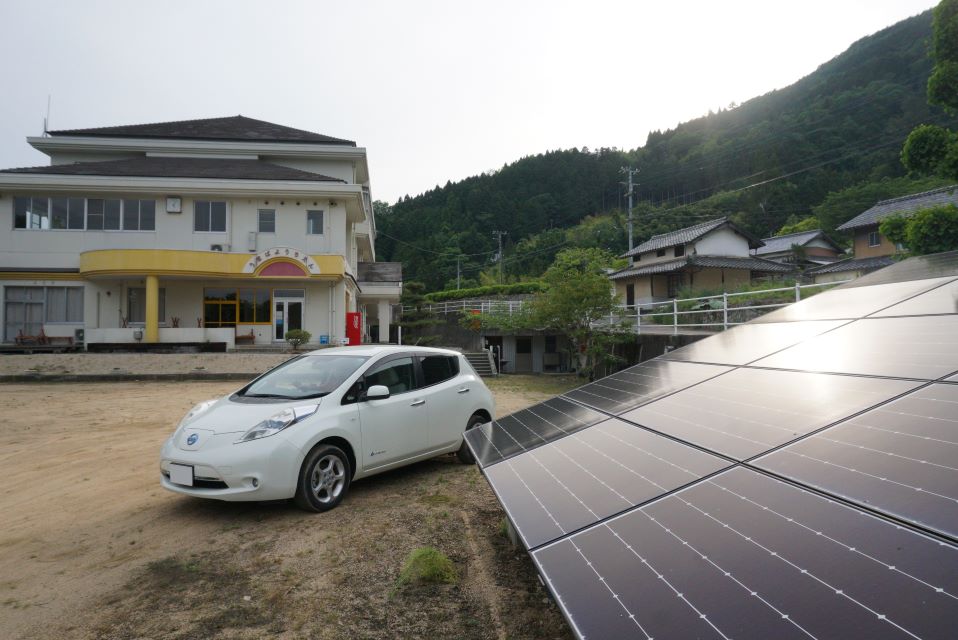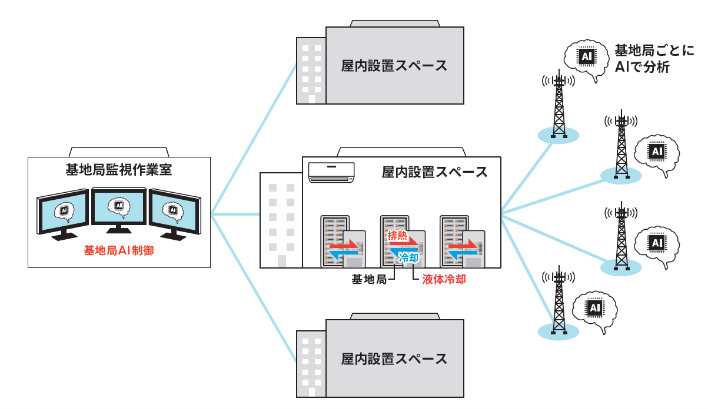Promotion of electrification and energy conservation
The Federation of Electric Power Companies of Japan
Outline
Electricity accounts for about 1/4 of Japan's final energy consumption, and the remaining 3/4 is the direct consumption of fossil fuels on the demand side. The industrial sector and industrial processes account for nearly half of the total CO2 emissions, and the other half accounts for the consumer sector (household and commercial) and transport sectors. Therefore, in order to achieve zero emissions in society as a whole, it is necessary not only to reduce the CO2 emissions from power sector but also to promote electrification and energy conservation in all sectors [1].
Until now, the Federation of Electric Power Companies of Japan and partners have contributed to reducing CO2 emissions while working on electrification and energy saving mainly in the consumer sector. In the future, we will work to further expand the electrification and energy savings in the consumer sector and will develop technologies for electrification and energy saving in the industrial sector. Furthermore, we will develop basic technologies such as energy management technologies with a view to integration and cooperation between various sectors (sector coupling).
Description
[Development of customer benefits and energy consumption management technology for work and living environment]
In the consumer sector, the growth rate of heating energy consumption is large and in order to reduce heating energy consumption, energy management that takes into account customer benefits such as occupant comfort is necessary. Therefore, an index for evaluating the thermal sensation and health of the occupants is constructed, and an energy consumption evaluation method for heating such as air conditioner based on the index is established. In addition, we will accumulate experimental data on energy saving and thermal comfort by air-conditioning heating and disseminate the benefits of electrification to society.
[Development of the energy-saving and electrification propulsion technologies centering on high-efficient heat pumps]
Aiming to spread the use of heat pumps in the industrial and commercial sectors, it is necessary to further increase the efficiency and expand the applicable range of heating. For this reason, we have been developing a frost-free heat pump and a new expansion energy recovery technology that contributes to the improvement of efficiency during high-temperature output and low-ambient temperature environment.
We have also been tackling research to clarify the applicability of low GWP (Global Warming Potential) refrigerants (including natural refrigerants such as CO2 and water) and expand the applicable range of heat pump heating. In addition, we will conduct to measure heat load and consumption of energy and resource in various production processes in the industrial sectors and to analyze and evaluate the energy systems, and we aim to integrate heat pumps comprehensively into the process. The integration will lead to improve product quality and reduce energy and costs.
[Research and development on basic technologies and institutional design for energy management with sector coupling]
Energy management across multiple energy sectors called as “sector coupling” is needed to realize a low carbon energy system. To realize this system, we research and develop a variety of basic technologies to evaluate the effectiveness of energy management with sector coupling at multiple scales, that is, from a single home, a block of town, municipality to the whole prefectures.
Furthermore, we develop a city energy simulation tool to forecast and analyze the city-wide spatial energy demand considering the demographic movement under a variety of future energy scenario such as all-electrification, spread of distributed energy resources and promotion of zero-emission buildings. We also study statistical analysis methods such as artificial intelligence and machine learning, to utilize huge amounts of data of smart meters and demand-side sensors for the sector-coupled energy management.
Partner(s)
Hokkaido Electric Power Co., Inc., Tohoku Electric Power Co., Inc., Tokyo Electric Power Company Holdings, Inc., Chubu Electric Power Co., Inc., , Hokuriku Electric Power Co., Inc. , The Kansai Electric Power Co., Inc., The Chugoku Electric Power Co., Inc., Shikoku Electric Power Co., Inc., Kyushu Electric Power Co., Inc., The Okinawa Electric Power Co., Inc. , Central Research Institute of Electric Power Industry
Supplementary information
[1] Summary of the recommendations of the Ministry of the Environment's Roundtable on Long-Term Climate Change Strategy
http://www.env.go.jp/policy/kikouhendou/teigengaiyou.pdf
Other Innovation Challenges
Enhancing power sector resilience against disaster risks
The Federation of Electric Power Companies of Japan
Improvement in Efficiency and Flexibility of Thermal Power
The Federation of Electric Power Companies of Japan
Maintaining grid stability for the mass introduction of renewable energy
The Federation of Electric Power Companies of Japan
Promotion of hydrogen use
The Federation of Electric Power Companies of Japan
Similar Innovation Challenges
Accelarating the penetration of renewable energy resources with “Open Energy System”
Sony Group Corporation
Achieving net-zero carbon emissions from plant factories using full artificial lighting
Taikisha Ltd.
Advanced technology for buildings providing energy-saving and comfortable indoor environment (under Net Zero Energy condition)
Mitsubishi Electric Corporation
AI control reduces base station power consumption by up to 50%
KDDI CORPORATION




